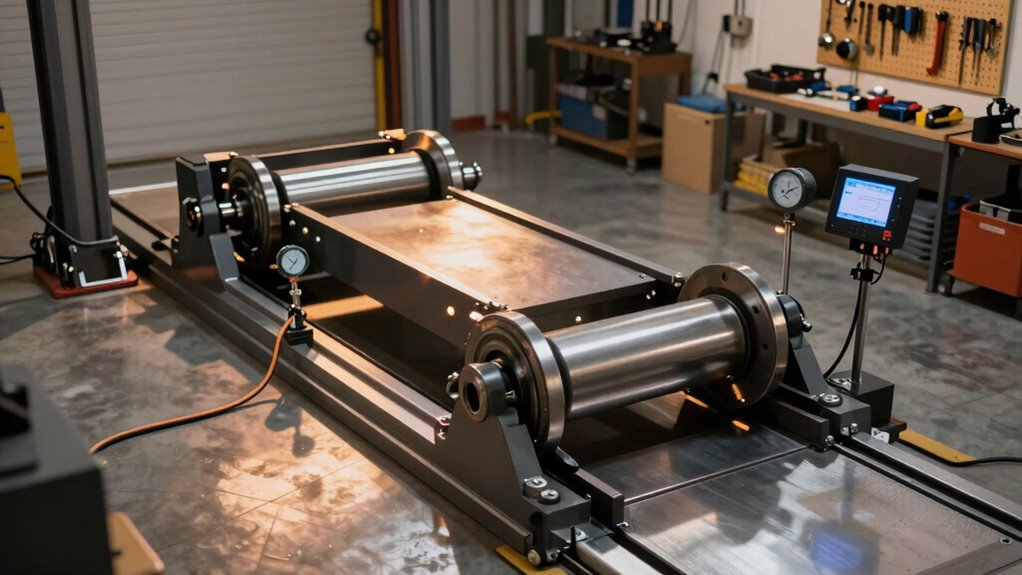
Truck Dyno ROI: The Business Case for Your Workshop
Stop wasting money on road testing. One dyno investment eliminates comebacks, builds loyalty, and outpaces competitors. Here’s why your workshop needs it.
Dynamometers, a vital tool for optimising engine performance, are often shrouded in misconceptions that can lead to scepticism and mistrust among motorcycle enthusiasts.
One common misconception is that dyno tuning is only for high-performance or racing motorcycles, when in fact, it can benefit street motorcycles by improving engine efficiency and throttle response.
Another myth is that dyno testing is an unnecessary expense, when it can actually help prevent costly repairs and downtime.
Grasping the value and simplicity of dyno testing, riders can make informed decisions about optimising their bike's performance.
The truth behind these misconceptions becomes even clearer, and it is essential to understand that dyno testing is a worthwhile investment for any motorcycle, regardless of its intended use.
Beyond the misconception that dyno tuning is an unnecessary expense lies a wealth of benefits that ultimately lead to cost savings for motorcycle enthusiasts.
In reality, dyno tuning is a cost-effective way to bolster performance and longevity, preventing engine damage and ensuring a longer lifespan for the bike, which in turn saves riders money.
The comprehensive service includes an exhaustive engine inspection, tuning adjustments, and post-tune analysis, making it a worthwhile investment for motorcycle enthusiasts.
Furthermore, dyno testing can be a one-time expense, providing riders with a personalized fuel and ignition map that optimizes their bike's power output and responsiveness.
Considering the long-term benefits and cost savings, dyno tuning can be a more affordable option than frequent repairs or replacements resulting from poorly tuned engines.
Professional dyno tuning services offer expertise and precision that can lead to significant performance gains, making the upfront cost a valuable investment for serious riders.
One prevalent misconception surrounding dyno tuning is that it is a complex and intricate process, inaccessible to all but the most seasoned riders.
However, this notion is far from the truth. Modern dynamometers are designed to provide accurate and precise measurements of engine performance, making the complexity of dyno testing overstated.
In reality, dyno testing is a straightforward process that can be easily understood and utilised by riders of all levels.
Professional dyno tuning services can demystify the dyno testing process, making it more accessible and beneficial to riders. Dyno testing can be a valuable tool for identifying and addressing engine issues, allowing riders to take proactive measures to prevent costly repairs.
Riders can tap into the full potential of their motorcycles, regardless of their performance level, with the help of professional dyno tuning services.
Dispelling the myth of complexity, riders can feel more confident and empowered to take control of their engine's performance, ultimately leading to a more enjoyable and rewarding riding experience.
As riders begin to comprehend the simplicity of dyno testing, they can expose the misconceptions surrounding its use.
A common misconception is that dyno testing is only for high-performance motorcycles or racing bikes. However, dyno tuning can benefit street motorcycles, improving engine efficiency and throttle response.
The quality of fuel used prominently influences dyno tuning results, highlighting the importance of using high-quality fuel for optimal engine performance.
Dyno testing is often seen as an unnecessary expense, but it can help prevent potential engine issues, saving riders from costly repairs and downtime.
In reality, dyno testing is an ongoing process that can be periodically revisited to maintain peak performance levels, ensuring the motorcycle continues to run at its best over time.
Riders can dispel these misconceptions and reap the rewards of optimal engine performance and efficiency.
With a dyno, riders can tap into their motorcycle's full potential, enjoying a smoother, more responsive ride.
Among the diverse misconceptions surrounding dyno testing, several myths stand out as particularly widespread.
One of the most significant misconceptions is that dyno tuning is only for high-performance or racing motorcycles. However, the truth is that all types of motorcycles can benefit from dyno tuning to improve power delivery, throttle response, and engine reliability.
A further myth is that dyno testing is a lengthy and costly process.
On the contrary, the long-term benefits of improved engine efficiency and throttle response far outweigh any initial outlay. Dyno tuning provides a personalised approach to motorcycle performance optimisation, tailored to the specific make and model of the bike, taking into account its unique characteristics.
Regular dyno tuning helps maintain peak performance levels, addressing multiple aspects of engine functionality and resulting in a more balanced ride.
This ongoing process also helps prevent potential engine issues down the road, ensuring the bike is always running at its best and providing riders with peace of mind and optimised performance.
Separating fact from fiction, riders can unlock the full potential of their motorcycles and enjoy a more satisfying riding experience, ultimately able to access the complete range of their bike's capabilities.
Beyond the misconceptions surrounding dyno testing lies a wealth of misinformation, perpetuating myths that can deter riders from releasing their motorcycle's full potential.
Riders can release their bike's peak performance and experience the thrill of a smoother, more responsive ride once they grasp the facts.
Some common misconceptions about dyno tuning include the notion that dyno tuning is exclusively for high-performance or racing motorcycles, that dyno testing is a lengthy and costly process, that fuel quality has no impact on dyno tuning results, and that environmental factors do not affect dyno tuning results.
In reality, dyno tuning can benefit all types of motorcycles.
It requires careful consideration of fuel quality and environmental factors.
Recognising and disproving these misconceptions allows riders to take the initial step towards achieving peak performance and a more enjoyable riding experience.
Misconceptions about dyno tuning have led many riders to overlook the benefits of this precise and data-driven approach to optimising their motorcycle's performance.
The truth is that dyno tuning can benefit all types of motorcycles, regardless of their intended use or performance level. Dyno tuning provides precise measurements of a motorcycle's performance, allowing for targeted adjustments to optimise power output, fuel efficiency, and engine reliability, ultimately leading to the best results.
Dyno testing is not a costly and time-consuming process, as many believe.
In fact, the long-term benefits of optimised engine performance and longevity far outweigh any upfront costs. Professional dyno tuners possess the expertise and equipment to fine-tune a motorcycle's performance parameters, making a significant difference in how the bike performs on the road.
Investing in dyno tuning enables motorcycle enthusiasts to experience improved engine efficiency, throttle response, and ride quality, making it a vital investment for anyone looking to get the most out of their bike.
Inaccurate power readings, misleading calibration claims, and overlooked maintenance needs are common misconceptions surrounding dynamometers that can lead to suboptimal engine performance and potential damage.
These myths can be dispelled by grasping the significance of precise calibration, regular maintenance, and accurate data analysis. By separating fact from fiction, riders and technicians can tap the full potential of their engines and guarantee optimal performance and longevity.
One common criticism of dynamometers is that they often provide unreliable power readings, which can lead to misinformed decisions in product development, performance optimization, and quality control.
However, this misconception stems from a lack of insight into the complex factors that influence dynamometer accuracy. In reality, dynamometers can provide highly accurate power readings when properly calibrated, maintained, and operated.
Several factors contribute to inaccurate power readings, including incorrect dyno test procedures, such as inconsistent load application or inadequate warm-up times.
Insufficient calibration results in inaccurate torque and speed measurements. Environmental factors, such as temperature and humidity, affect dynamometer performance.
Poor data analysis leads to misinterpretation of test results.
In respect of dynamometer calibration, many manufacturers make claims that are misleading at best, and downright deceptive at worst.
These claims may include assertions that their devices are "pre-calibrated" or "plug-and-play", but this is often far from the truth. Proper calibration necessitates a thorough comprehension of the specific vehicle and engine being tested, along with the environmental conditions in which the testing will take place.
Manufacturers may exaggerate calibration claims or base them on ideal laboratory conditions, which do not reflect real-world testing scenarios, leading to inaccurate results. Failure to properly calibrate a dynamometer can result in power readings that are off by as much as 10-20%, which can markedly impact the validity of test results.
It is vital to be aware of these misleading claims and to verify that your dynamometer is properly calibrated to account for the unique characteristics of your vehicle and testing environment.
The misconception that dynamometers are maintenance-free devices stems from a lack of understanding of their requirements.
In reality, dynamometers need regular maintenance to ensure optimal performance and a long lifespan. Neglecting regular dyno testing can lead to decreased engine performance, reduced fuel efficiency, and increased emissions, resulting in a less enjoyable ride and a higher environmental impact.
To get the most out of your bike, it is essential to appreciate the importance of regular maintenance.
This involves:
Debunking Common Misconceptions about Dynamometers
Debunking Cost Misconceptions
At Hyper Power, we understand that dynamometers are often viewed as expensive investments. However, this notion is far from reality. In reality, our dynamometers provide a precise and efficient means of measuring torque and rotational speed, ultimately reducing expenditures associated with inaccurate measurements and trial-and-error approaches. If you have any questions about our Custom Dyno Solutions, Installation and Setup, Training and Certification, Technical Support and Maintenance, Software Updates and Upgrades, Diagnostics and Performance Analysis, Rental Services, Dynamometer Testing Services, and Accessories and Parts, please do not hesitate to contact us.
Complexity Misconceptions Uncovered
Another misconception revolves around the perceived intricacy of dynamometers. However, our modern dynamometers are designed to be user-friendly, offering intuitive interfaces and automated data analysis. This simplifies the measurement process, making it accessible to a wide range of users. We can guide you through the process with our Training and Certification services.
Dispelling Use Misconceptions
Some believe dynamometers are limited to specific industries or applications. In reality, our dynamometers are adaptable tools, applicable to diverse fields, including aerospace, automotive, and industrial manufacturing. Our Dynamometer Testing Services can cater to your specific needs.
Separating Fact From Fiction
Dynamometers are often misunderstood as being prone to inaccuracies. However, our high-quality dynamometers are precision-engineered to provide reliable and accurate measurements, ensuring that test results are trustworthy and reproducible. Our Technical Support and Maintenance team ensures that your dynamometer is functioning accurately.
Common Misconceptions Exposed
The notion that dynamometers are bulky and occupy excessive space is another misconception. Our modern dynamometers are designed to be compact and lightweight, making them ideal for laboratory and field testing applications. Our Rental Services offer flexible solutions for your testing needs.
Setting the Record Straight
It is crucial to separate fact from fiction in regards to dynamometers. By grasping the capabilities and limitations of these devices, users can tap into their full potential and reap the benefits of precise torque and rotational speed measurement. Our Diagnostics and Performance Analysis services can help you optimise your dynamometer's performance.
Unraveling Dynamometer Myths
In final analysis, our dynamometers are precise, efficient, and adaptable tools that provide reliable measurements. By dispelling common misconceptions, users can harness the full potential of our dynamometers, driving innovation and progress in diverse industries. If you have any questions or concerns, please do not hesitate to contact Hyper Power.

Stop wasting money on road testing. One dyno investment eliminates comebacks, builds loyalty, and outpaces competitors. Here’s why your workshop needs it.
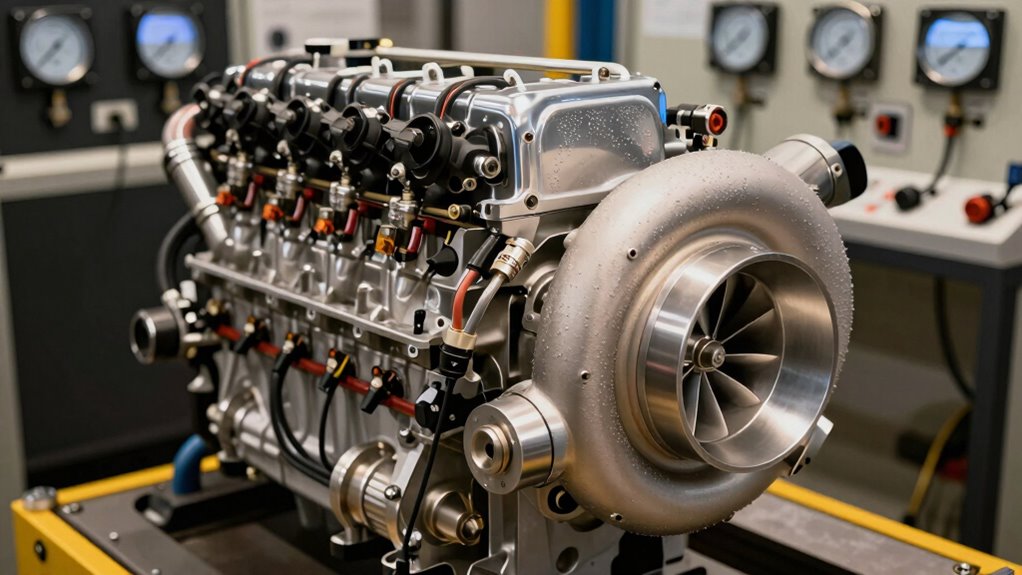
Diesel turbo lag isn’t inevitable—modern dyno diagnostics reveal the hidden culprits stealing your power. Find out what your engine is hiding.
Fleet operators are throwing money away. Dynos reveal what road tests miss—and how much you’re losing.
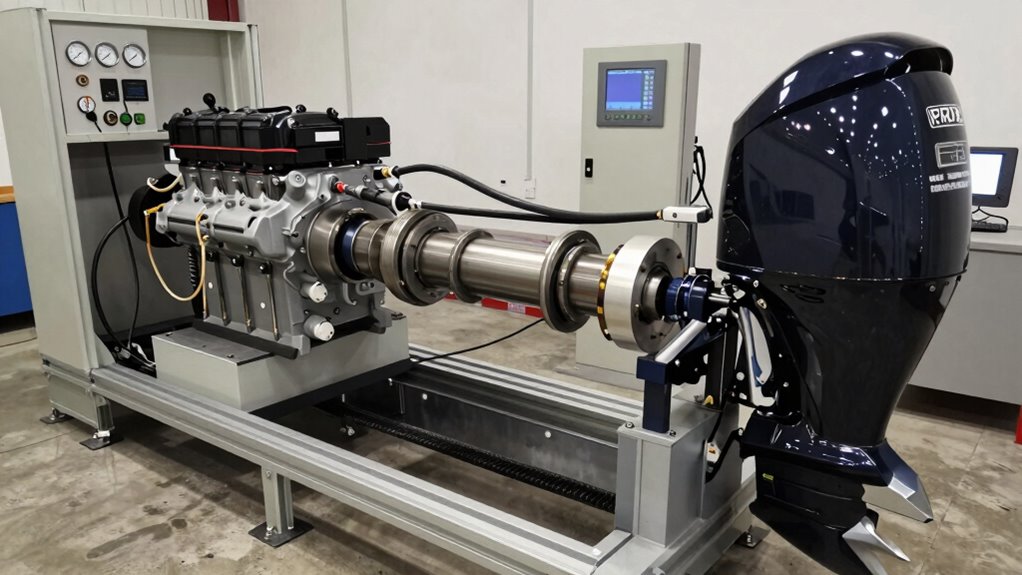
Water testing won’t reveal what dyno testing exposes. Learn why engine builders skip this step at their peril.
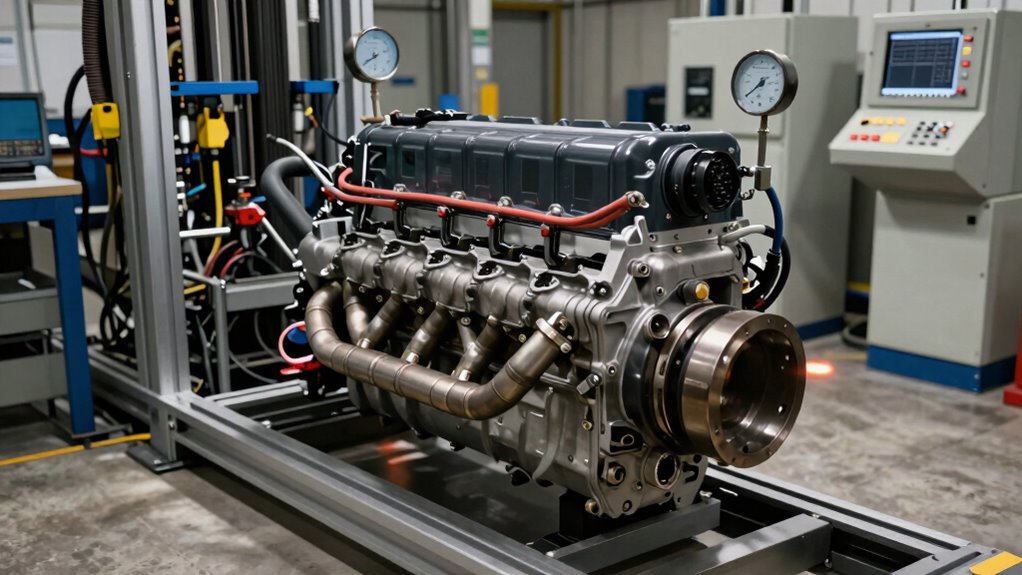
Tractor performance tests reveal what manufacturers won’t tell you. See how dynamometer data exposes hidden inefficiencies in your equipment.
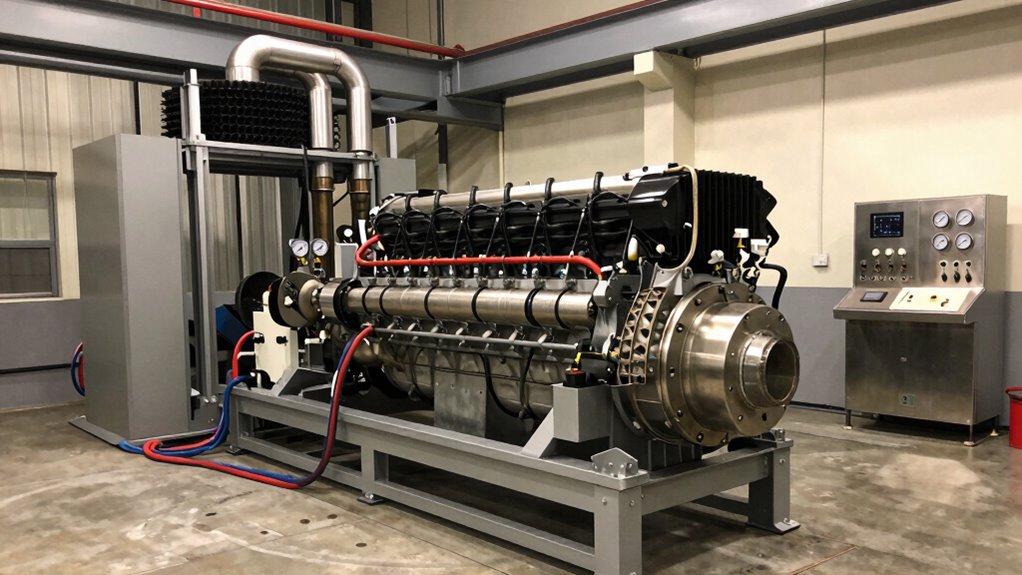
Diesel engine testing mistakes cost thousands monthly. Learn what separates thriving operations from regulatory nightmares.
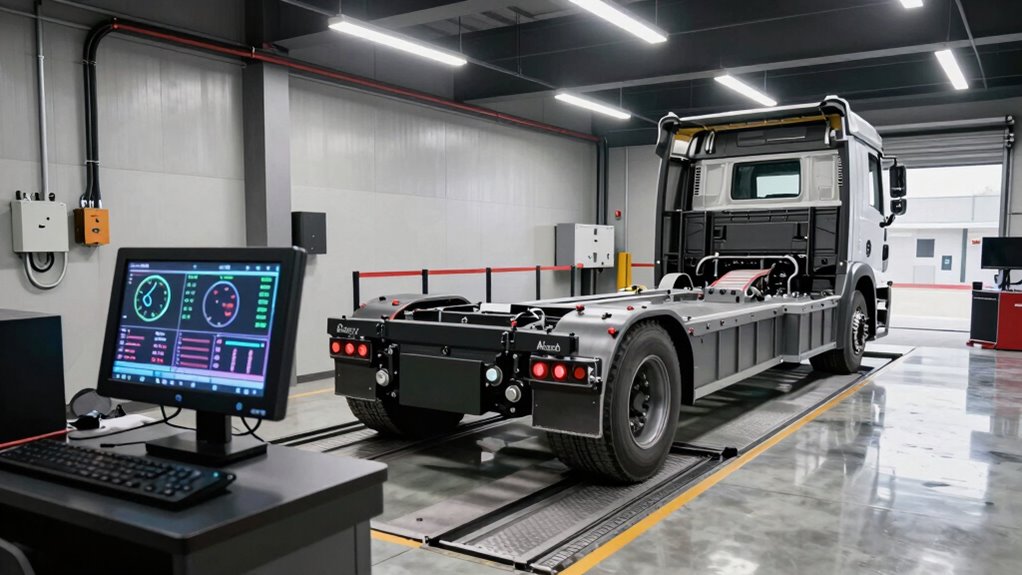
Build a diesel dyno empire while most workshops fail—here’s what separates winners from the rest.
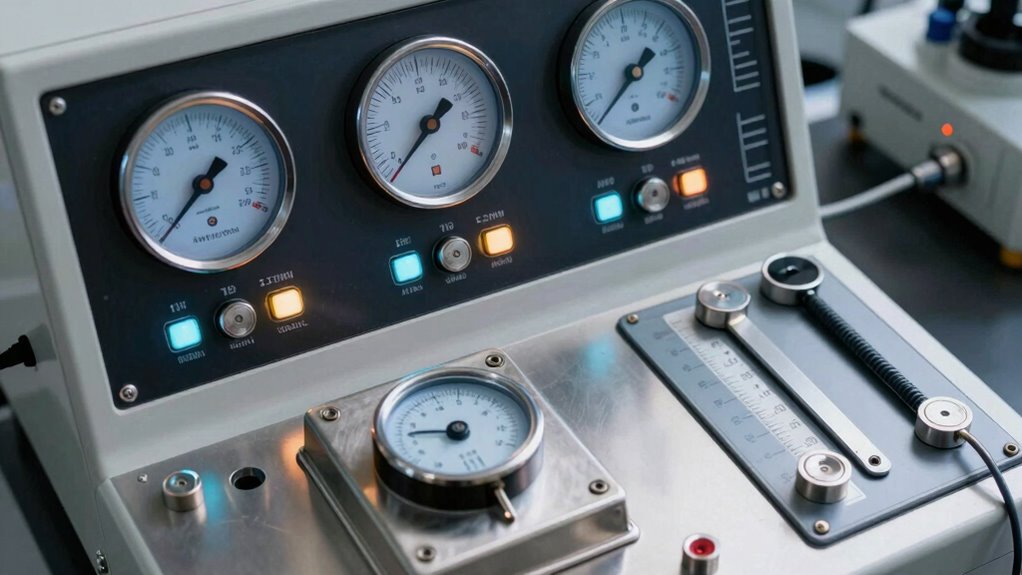
Most dyno operators ignore this one calibration step—and it’s costing them thousands in poor data.
No posts found!